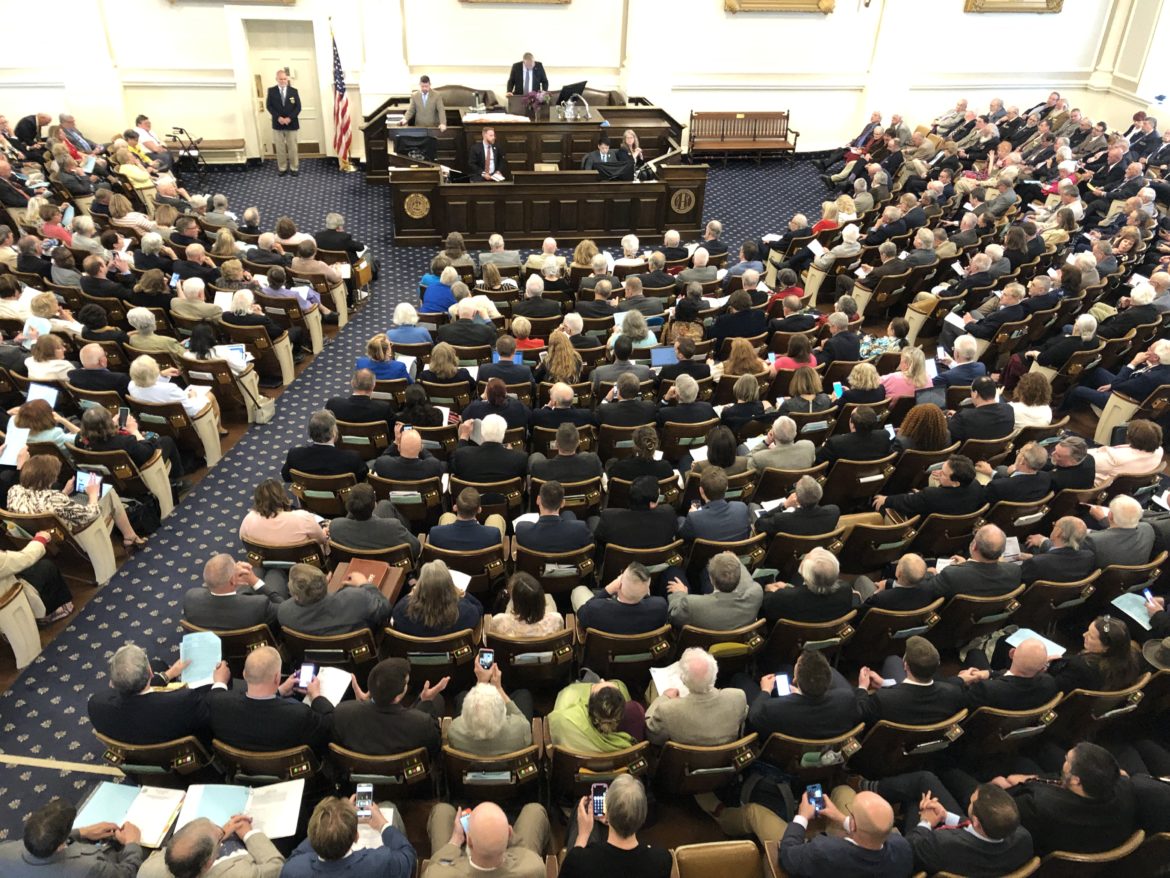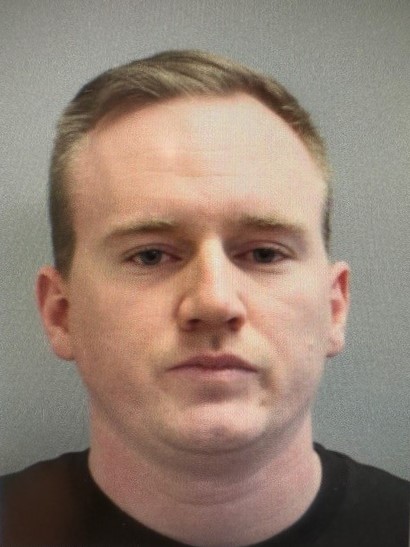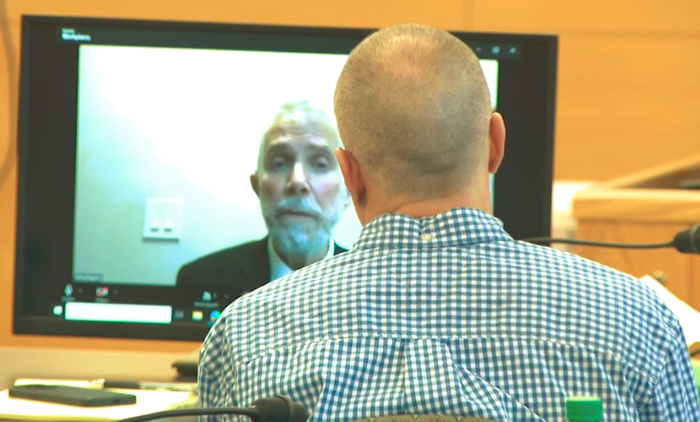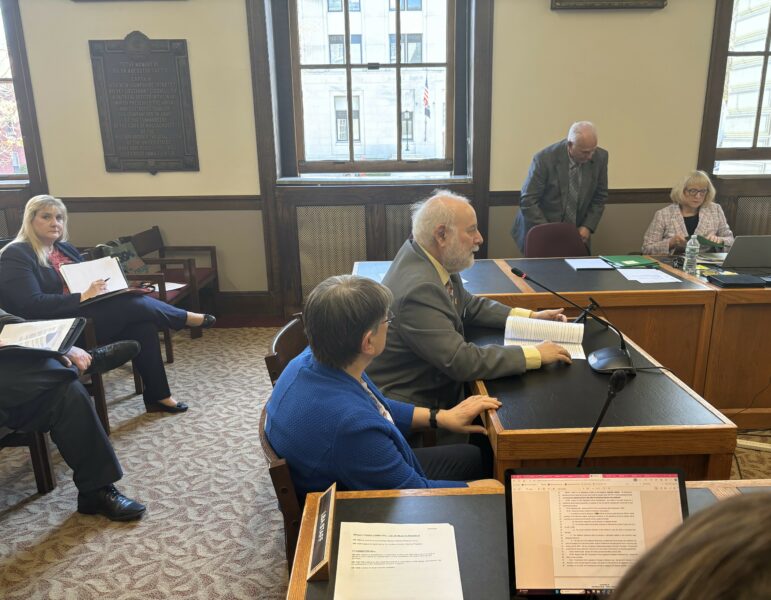By GARRY RAYNO, InDepthNH.org
CONCORD — The House once again Thursday approved an independent redistricting commission to draw the state’s political boundaries instead of having the majority party control the process.
The legislature approved an independent commission last session with the Senate approving it unanimously before it was vetoed by Gov. Chris Sununu and the legislature failed to garner the two-thirds majority needed to override.
Supporters said House Bill 1665 is the latest bipartisan attempt to develop a fair approach to the usually partisan process that includes gerrymandering.
Under the bill, unelected volunteers would draw the maps for the Congressional, Executive Council, Senate and House districts and present the plans to the legislature, said Rep. Wayne Moynihan, D-Dummer, which meets the constitutional requirements.
“This gives New
Hampshire voters the power to decide who their representatives will be,” he
said, “rather than the other way around.”
But opponents argued the plan is unconstitutional because the constitution says
lawmakers must do the work.
Any group can advise lawmakers on the process said Rep. Katherine Prudhomme-O’Brien, R-Derry, “so this legislation is not needed.”
The House approved the bill on a 203-121 vote, not enough to override a veto.
The House also approved several bills that would undue changes Republican controlled legislatures made in voting requirements such as requiring voters be residents of New Hampshire instead of having to be domiciled here when registering and would require new voters to register vehicles and hold a state driver’s license within six months of registering to vote.
The bills would eliminate simple requirements established in recent years which are less stringent than those for Real ID or for financial management tools, said Timothy Lang, R-Sanbornton, and prevent the Secretary of State from working with other states to ensure voters do not cast ballots in two states.
The bill would repeal Senate Bill 3 which created new and quite complex voter registration forms, said House Majority Leader Douglas Ley, D-Jaffrey. It also created ominous paperwork if someone registers to vote within 30 days before an election, he said, calling the 30-day period arbitrary that serves no legitimate purpose.
The House approved House Bills 1270 and 1653 along party lines.
Born Alive
The House Thursday killed “the born alive protection act,” a bill similar to legislation proposed in other states and the U.S. Senate.
Supporters said every living baby born should have medical treatment to save their lives.
The bill would also require health professionals to report incidents when physicians failed to provide life-saving care and and would make it a felony if a doctor does not provide the care.
“If a baby lives through (an abortion) procedure, he or she deserves medical care,” said Rep. Deanna Jurius, R-Meredith, “No one is allowed to kill a baby and any baby denied basic medical care will die.”
Others said in New Hampshire there are no restrictions on abortions during pregnancy and babies are born alive that survive an attempted abortion.
Prudhomme-O’Brien introduced a Milton woman who she said survived an abortion and noted there are no statistics for the state because abortion providers refuse to release them.
But bill opponents said it is medically inaccurate and inflammatory, would criminalize doctors and take away their ability to provide the most appropriate care at critical times.
“At an
executive session, supporters implied that medical professionals are committing
egregious and already illegal acts,” said Rep. Marjorie Smith, D-Durham. “To be
clear, reproductive health care in New Hampshire is provided by medical
professionals who follow the highest ethical standards, and more importantly,
follow the same law as every other resident of New Hampshire.”
The House killed House Bill 1675 on a 177-131vote.
No Guns
The House approved a bill that would ban firearms from public school property and other facilities hosting school programs.
Under House Bill 1285, there are exceptions for on-duty and off-duty law enforcement, military and individuals designated by the local school board.
Opponents said the bill violates the state and federal constitutions and House rules which forbid approving unconstitutional bills.
“We all know
gun-free zones are very dangerous places,” said Mike Sylvia, R-Belmont. “We
want to protect the safety of the children.”
Others said there are school boards in the state that will never authorize
anyone to carry a firearm on school property.
“This isn’t going to work. We are one of the safest states in the nation,” said Rep. John Burt. “I believe that people who want to do harm, understand we carry guns so there will not be any tragedies.”
Bill supporters said the bill clearly defines school property and who is not allowed to carry firearms.
“State law is not sufficient for law enforcement to prohibit firearms on school property,” said Rep. David Luneau, D-Hopkinton. “This bill would enable a school building administrator to ask a person who is not authorized to carry a firearm on school property to leave and to contact local law enforcement for intervention if necessary.”
The House passed the bill on a 182-141 vote.
Transgender Athletes
The House killed a bill that would have prevented transgender students from participating on female sports teams.
The prime sponsor of House Bill 1251, Rep. Mark Pearson, R-Hampstead, said his proposal would strike a balance to provide justice noting some girls have had their school and state records erased by transgender athletes.
“This bill
simply requires you be on the team of your biological sex,” Pearson said.
“Biological females are at risk of not having a team.”
But bill opponents said it is nothing more than discrimination.
“This bill is about one thing: prohibiting students who are trans-athletes from competing on a girls’ team,” said Rep. Stephen Woodcock, D-Center Conway. “This law is not in the best interest of our students, it’s a wolf in sheep’s clothing, it is discrimination plain and simple.”
The House killed the bill on a 184-131 vote.
Free Speech
The House shouted down an attempt to prohibit public and private colleges and universities from disciplining students for engaging in speech, association, or other forms of constitutionally protected expression.
The bill’s prime sponsor Rep. Gates Lucas, R-Sunapee, said freedom of expression is constantly under attack on college campuses.”
“Students should not have to fear speaking up,” Lucas said, “they should be able to speak freely.”
He said some speakers at New Hampshire colleges were shouted over and threatened.
“I’m here to support diversity,” Lucas said. “All sides should be heard.”
But opponents said there is no example of colleges suppressing any student’s free speech or expression.
“This bill is unnecessary,” said Rep. Patricia Cornell, D-Manchester. “This bill seeks to solve problems that do not exist.”
There are unintended consequences from imposing the bill’s requirements such as “reasonable time, place, and manner restrictions to protect the safety of all students,” she said. “Supporters could give no examples of schools suppressing free speech.”
The bill was killed on a 203-121 vote.
The House was working into the evening to meet its deadline to act on bills that do not require review by a second committee.
Garry Rayno may be reached at garry.rayno@yahoo.com





